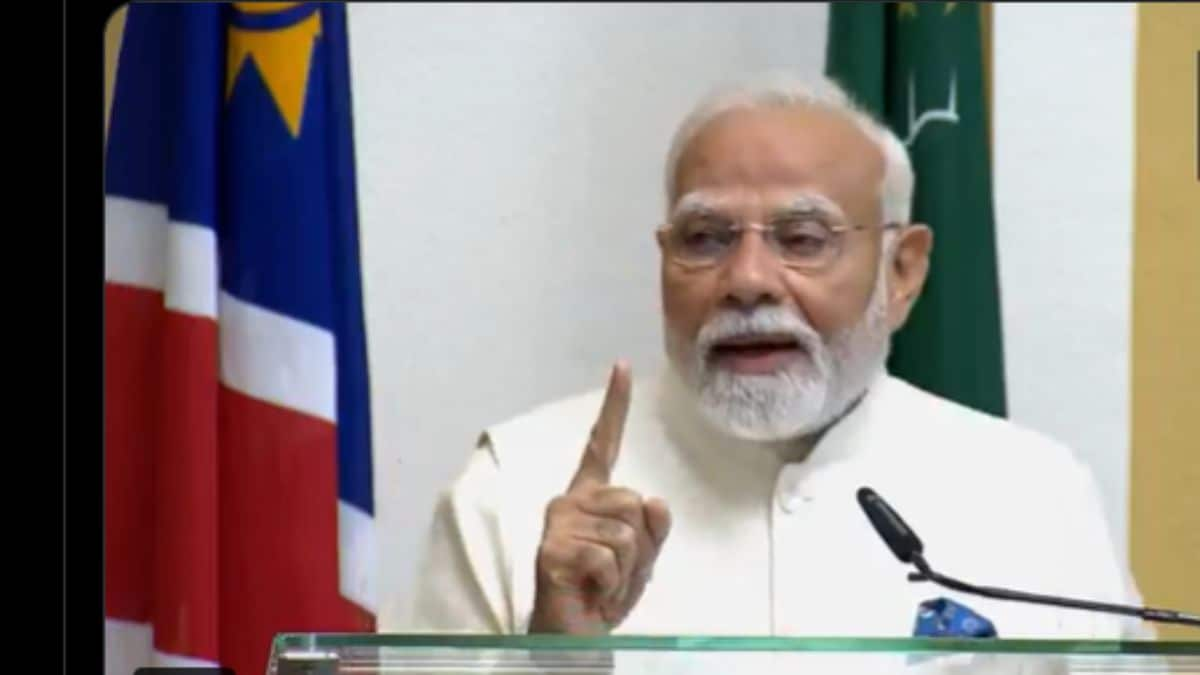

Prime Minister Narendra Modi's recent visit to Namibia, the first by an Indian Prime Minister in nearly three decades, underscores India's unwavering commitment to its long-standing relationship with the southern African nation. Modi's visit, the final leg of a five-nation tour, is a powerful reaffirmation of India's support for Namibia's freedom struggle and its dedication to strengthening ties with the Global South.
India's connection with Namibia dates back to the mid-20th century, when it became one of the first nations to champion Namibia's independence at the United Nations in 1946. This advocacy continued through various international forums, with India providing consistent moral, material, and diplomatic support to the Namibian leadership in exile. A significant milestone was the establishment of the first South West Africa People's Organisation (SWAPO) embassy in New Delhi in 1986, which symbolized India's recognition and support for Namibia's liberation movement. India also offered material assistance and military training to those fighting for Namibia's freedom against apartheid South Africa.
Following Namibia's independence in 1990, India upgraded its observer mission to a full-fledged High Commission, solidifying diplomatic relations. Since then, the two nations have maintained warm and cordial relations, characterized by mutual trust and understanding. Namibia reciprocated by opening its resident Mission in New Delhi in 1994.
Modi's recent visit served to reinforce these historical ties and explore new avenues for cooperation. During his address to the joint session of the Namibian Parliament, Modi emphasized the shared history of struggle against colonialism and the commitment to freedom and development that binds the two nations. He highlighted the common values of dignity, freedom, equality, liberty, and justice enshrined in their respective constitutions.
The visit also focused on strengthening economic ties between India and Namibia. The two countries have identified key areas for collaboration, including energy security, critical minerals, and digital innovation. Namibia, rich in resources such as uranium, copper, cobalt, and rare earth minerals, is poised to play a crucial role in India's clean energy program. Both countries are also exploring opportunities to expand cooperation in mining, health, agriculture, and infrastructure. Furthermore, a technology agreement enabling unified payment interoperability between the two countries is expected to enhance cooperation in the fintech and digital sectors.
India has consistently provided development assistance and capacity-building support to Namibia through various programs. The Indian Technical and Economic Cooperation (ITEC) program has offered training to numerous Namibian professionals in fields such as telecommunications, defense, diplomacy, and public health. India has also supported Namibia in times of need, gifting Covid-19 vaccines and providing aid for drought relief and natural disasters. The establishment of an 'India Wing' at the University of Namibia's Ongwediwa campus, through a substantial grant from India, stands as a testament to India's commitment to education and human resource development in Namibia.
Modi's visit to Namibia marks a new chapter in the enduring friendship between the two nations. By reaffirming India's historical support for Namibia's freedom and laying the groundwork for enhanced cooperation in key sectors, the visit has set the stage for a stronger and more vibrant partnership in the years to come. This renewed engagement reflects India's broader vision of strengthening ties with the Global South and promoting a more equitable and prosperous world.